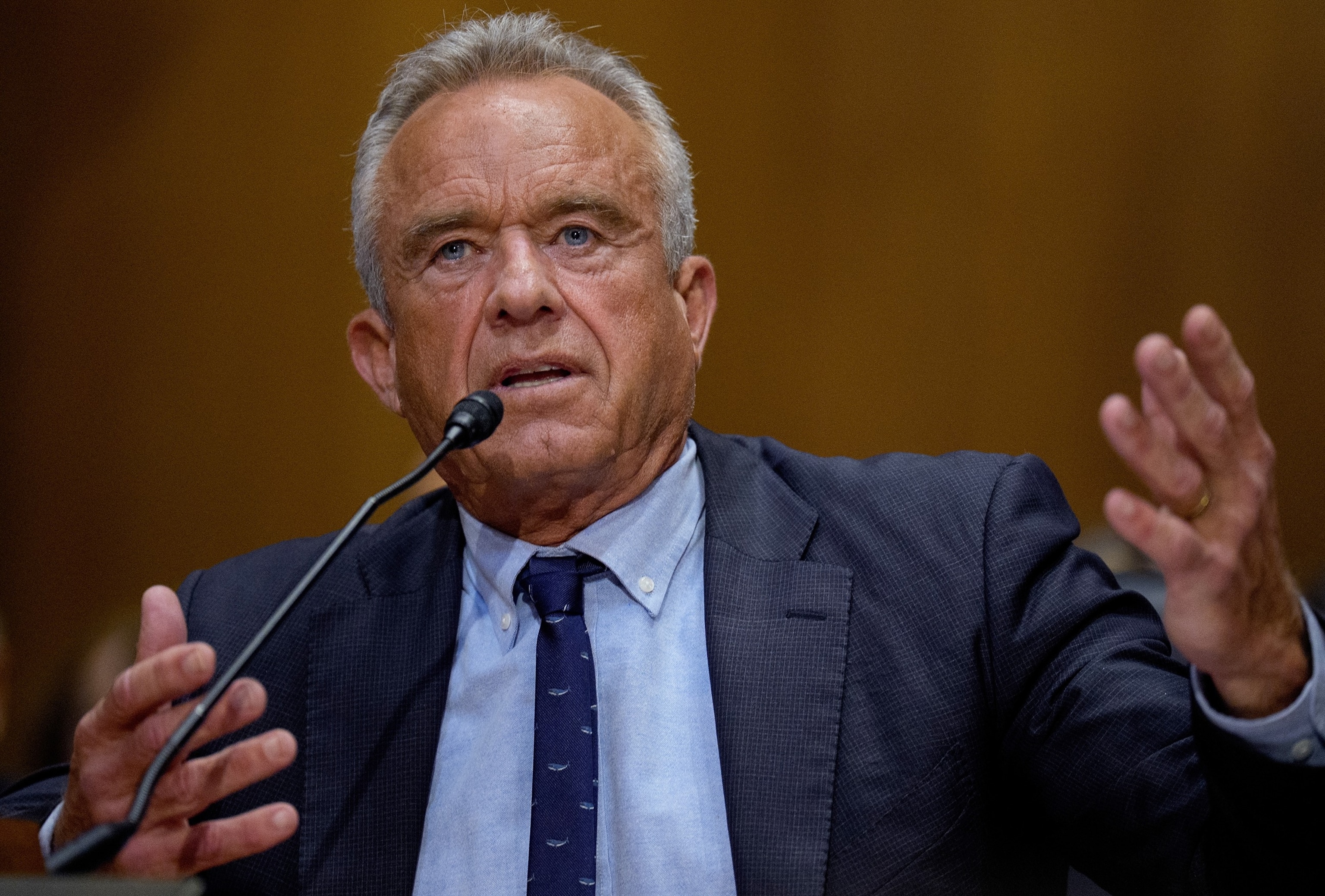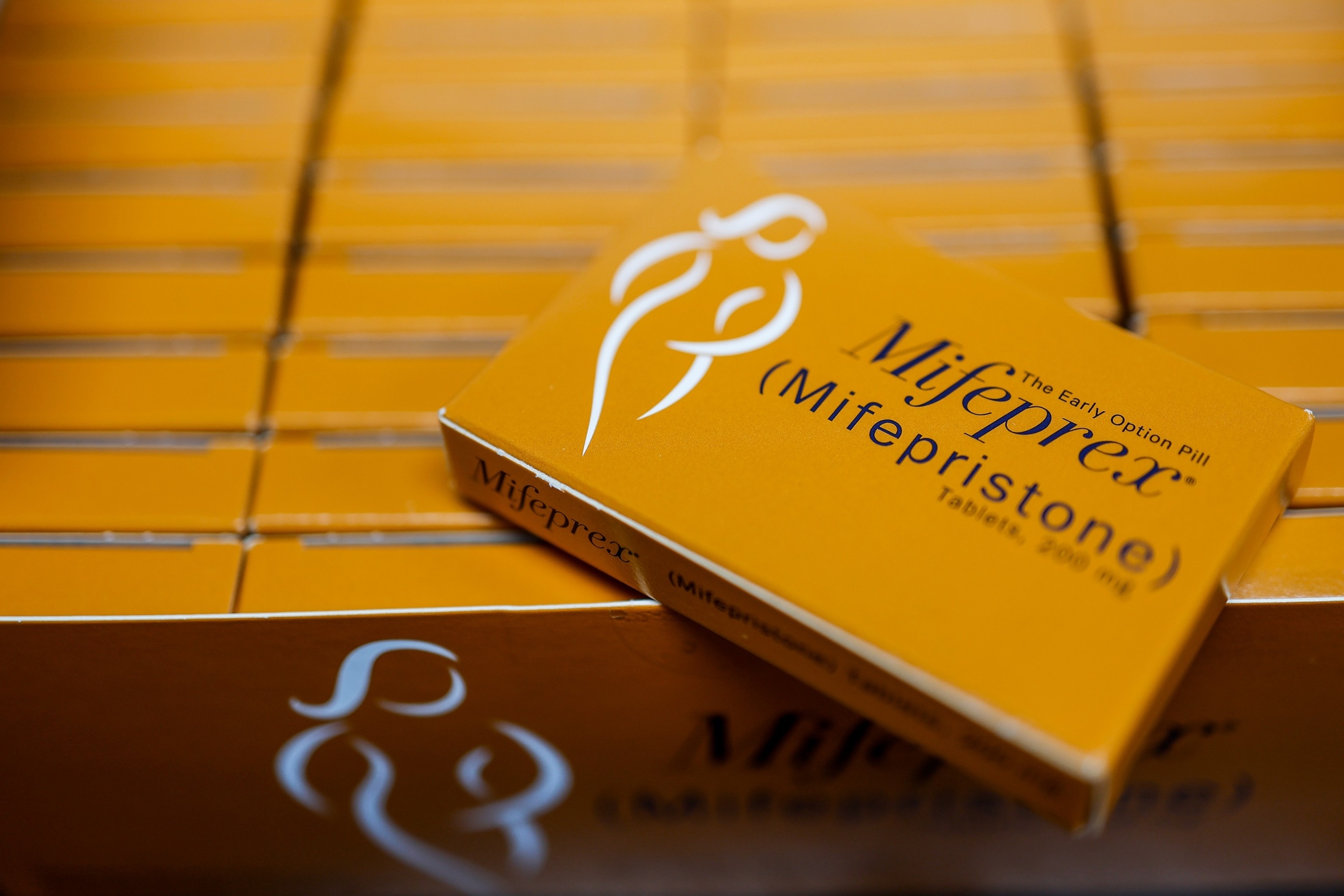

Health and Human Services Secretary Robert F. Kennedy Jr. told Republican states this week that the FDA would conduct a new review of abortion pills, a move that abortion rights advocates say could lead to significant restrictions on the most common abortion method nationwide.
Medication abortion is used in nearly two-thirds of abortions, according to the Guttmacher Institute, a research group focusing on sexual and reproductive health. It is also the primary way that abortions continue in states where abortion is banned, largely because of telehealth appointments and shield laws, which allow some providers in other states to mail abortion pills to women in states with bans without fear of prosecution.

Republicans and anti-abortion advocates have been pressing the Trump administration to change the FDA's rules around mifepristone, an oral drug typically used in combination with another drug, misoprostol, to induce an abortion or to help manage an early miscarriage.
If access to the pill were restricted, either by banning telehealth access or narrowing the window when women can use it, it would significantly cut back on abortion access in post-Roe v. Wade America, where at least 16 states have ceased nearly all abortion services.
Kennedy and FDA Commissioner Marty Makary, in their letter to 22 Republican attorneys general who had requested the FDA review mifepristone's safety, said the FDA would conduct "its own review of the evidence, including real-world outcomes and evidence, relating to the safety and efficacy of the drug."
"The concerns you have raised in your letter merit close examination. This Administration will ensure that women's health is properly protected by thoroughly investigating the circumstances under which mifepristone can be safely dispensed," Makary and Kennedy wrote.
A key study cited by Republicans in their effort, and Kennedy and Makary in their response letter, was conducted by the Ethics and Public Policy Center, a conservative think-tank whose president formerly worked at the Heritage Foundation, which published Project 2025.
The study was not peer-reviewed and was published by the center on its website, not in a scientific journal. It found that almost 11% of women experienced a "serious adverse event," which is much higher than the 0.5% rate found in clinical studies and listed by the FDA on the medication label.
Kiki Freedman, co-founder and CEO of Hey Jane, the largest telemedicine abortion provider in the country, told ABC News on Wednesday that the new HHS review could "undermine access to one of the most thoroughly studied and widely used medications in the country."
"HHS Secretary RFK Jr and FDA Commissioner Marty Makary's threat to conduct their own 'review' of mifepristone underscores the disturbing rise of junk science and politically motivated attacks in shaping public health policy," Freedman said.
Planned Parenthood also reacted on Wednesday, lauding the impact of telehealth on abortion access.

"For 25 years, mifepristone has been used safely and effectively by patients across the country. Recent innovations like telehealth have expanded access to people who would otherwise be unable to get abortion care -- and the difference that has made in the reproductive lives and futures of Planned Parenthood patients is undeniable," said Danika Severino Wynn, vice president of care and access at Planned Parenthood Federation of America.
Kennedy, asked about the study by Sen. Josh Hawley, R-Mo., in May, said the study was "alarming" and indicated that "at the very least, the label should be changed."
Kennedy also said that he'd asked Makary to do a "complete review" of mifepristone and "report back."
Kennedy has not committed to changing the rules of access around mifepristone, and Tuesday's step only promises a review of the data.
Mifepristone works by blocking progesterone, a hormone that the body needs to continue a pregnancy.
The FDA authorized mifepristone -- sometimes called by the brand name Mifeprex -- for medication abortion in September 2000 for up to seven weeks' gestation, which was then extended to 10 weeks' gestation in 2016.
However, the World Health Organization says the two-drug regimen can be taken up until the 12-week mark of pregnancy.
In 2019, the FDA approved a generic version of the drug.
As of 2022, medication abortions account for 57% of abortions performed in the U.S., up from 19% in 2011, data from the Centers for Disease Control and Prevention shows.
Mifepristone is safe and effective when used as indicated and directed by the FDA, the agency said. When used in combination, mifepristone and misoprostol are nearly 97% effective at terminating a pregnancy, according to a 2015 systematic review from the University of California, Davis.
